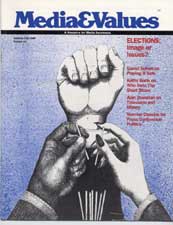PASTORING: Faith Can Counter Campaign Cynicism
|
This article originally appeared in Issue# 44
|
At the end of the movie The Candidate the victorious contender, played by Robert Redford, emerges from a room in his headquarters hotel, turns to his crafty campaign manager and asks, "What do I do now?"
I think there's a lot of truth in that line.
Very few people run for political office in order to deceive the public. Our collective experience confirms that most officeholders are hard workers for the common good.
Modern campaigns don't measure this desire to be of service, however, instead, they emphasize packaging candidates to maximize voter identification. Complex issues must be telescoped into the 30-second sound bites designed to resonate with voters' hopes and fears.
It's hardly surprising, then, that a candidate who has been pushed and shoved and molded into a marketable commodity would lose touch with self. After the election, the winner faces an even greater challenge: honoring the content and process of a mediated campaign while recapturing the ideas and aspirations that first inspired the run for office.
The religious community has a vital pastoral concern in this area. It must work to provide candidates with an opportunity to stay in touch with themselves. This could be something as simple as a letter congratulating a candidate for a courageous stand, or as complex as a community forum designed to explore issues in their full multiplicity.
Religious organizations can also play an important role in interpreting the dynamics of campaigning and the subtle meanings and implications of election rhetoric. Most of all, they can help their members resist the temptation to demand simplistic solutions to many-sided controversies.
Separation between the voter and the candidate in modem campaigns tends to engender cynicism. The candidate becomes a commodity and the voter a cog in a meaningless machine. Faith has always countered cynicism and won. By bringing candidate and voter together, faith has the potential to beat cynicism once again, bringing new hope to elected officials and the electorate alike.



